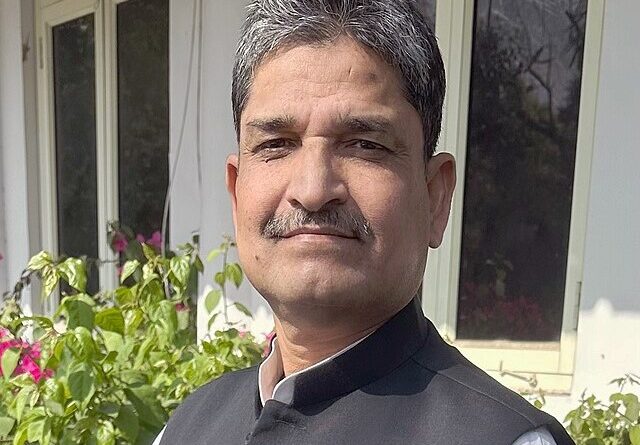Congress MP Mohammed Jawed Challenges Waqf Amendment Bill in Supreme Court
(Judicial Quest News Network)
New Delhi,4, April,2025. In a momentous move, Congress Member of Parliament Mohammad Jawed has filed a petition in the Supreme Court challenging the recently passed Waqf Amendment Bill 2025. The bill, which amends the Waqf Act of 1995, is currently awaiting the President’s assent to become law. The petition raises serious constitutional concerns, accusing the bill of discriminating against the Muslim community and violating fundamental rights guaranteed under the Indian Constitution.
Chronology of Events Leading to the Legal Challenge
1. Passage of the Waqf Amendment Bill 2025:
After a marathon debate in Parliament, the Waqf Amendment Bill 2025 was passed by the Rajya Sabha at around 2:30 AM, following a 14-hour-long session. The Lok Sabha had previously cleared the bill after an equally intense discussion that stretched past midnight. The bill seeks to amend the Waqf Act of 1995, aiming to enhance the management and regulation of Waqf properties across India.
2. Immediate Legal Response:
Within hours of the bill’s passage, Congress MP Mohammad Javed filed a petition in the Supreme Court, challenging the bill’s constitutionality. The petition, filed through advocate Anas Tanveer, alleges that the amendments violate several key constitutional provisions, including Articles 14 (Right to Equality), 25 (Freedom to Practice Religion), 26 (Freedom to Manage Religious Affairs), 29 (Minority Rights), and 300A (Right to Property).
Key Constitutional Concerns Raised in the Petition
A. Discrimination Against the Muslim Community:
The petitioner argues that the bill imposes restrictions on Waqf governance that are not applicable to other religious endowments. For instance, Hindu and Sikh religious trusts continue to enjoy significant autonomy, while the amendment introduces disproportionate state interference in the management of Waqf properties. This, Jawed contends, violates Article 14, which guarantees equality before the law, and Article 15, which prohibits discrimination based on religion.
B. Violation of Religious Freedom and Autonomy:
A contentious provision in the bill requires that only individuals who have practiced Islam for at least five years can declare a property as Waqf. The petitioner describes this condition as arbitrary and ungrounded in Islamic law, thus infringing upon the fundamental right to religious freedom under Article 25. Additionally, it discriminates against recent converts to Islam who may wish to dedicate property for religious or charitable purposes.
C. Challenges to the Omission of ‘Waqf by User’:
The bill eliminates the ‘Waqf by user’ provision, which has been recognized in numerous judicial decisions, including the landmark Ayodhya-Babri Masjid verdict. This provision allowed properties to be considered Waqf based on long-standing religious use. Its removal, Jawed argues, violates Article 26, which guarantees religious denominations the right to manage their own affairs.
D. Inclusion of Non-Muslims in Waqf Governance:
Another major point of contention is the bill’s provision allowing non-Muslims to be part of the Central Waqf Council and State Waqf Boards. Javed criticizes this as an unwarranted interference in religious governance, noting that Hindu religious endowments are exclusively managed by Hindus under various state laws. This, he claims, constitutes an arbitrary classification that violates Articles 14 and 15.
E. Increased State Control Over Religious Properties:
The petition also challenges the bill’s shift of administrative control from Waqf boards to district collectors, effectively diluting the autonomy of Muslim religious institutions. This, Jawed asserts, contravenes Article 26D of the Constitution, which protects the right of religious groups to manage their affairs without undue government interference. Furthermore, the bill’s expansion of state control over Waqf assets undermines property rights protected under Article 300A.
The Supreme Court’s decision on this petition could have profound implications for the management of religious endowments in India. By challenging the Waqf Amendment Bill 2025, Mohammad Jawed not only questions the legality of the bill but also raises broader concerns about religious freedoms, minority rights, and the autonomy of religious institutions in India.
As the legal battle unfolds, all eyes will be on the Supreme Court to determine whether the amendments to the Waqf Act uphold the constitutional principles of equality, religious freedom, and minority rights—or if they set a precedent for increased state control over religious affairs.




